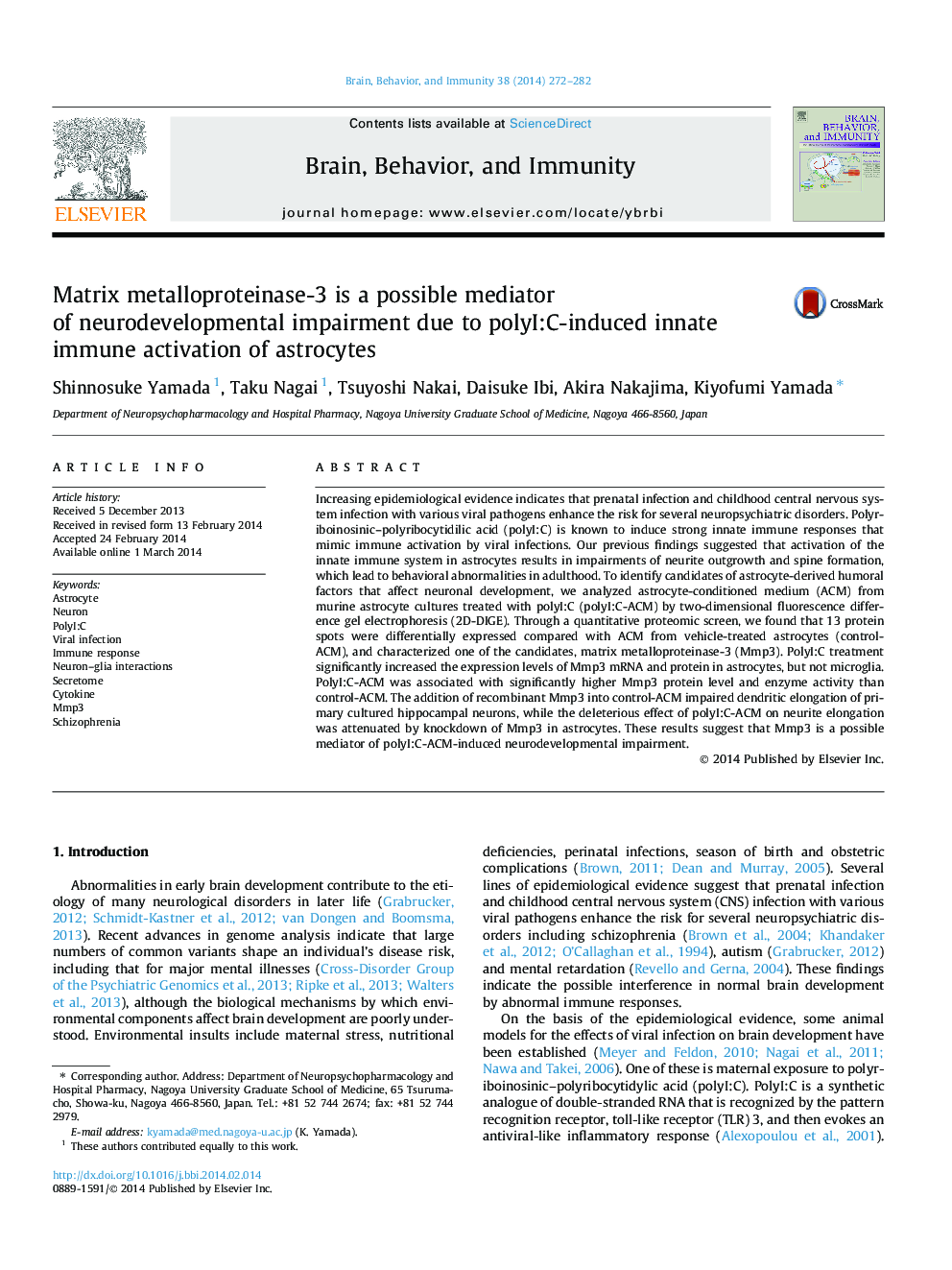| Article ID | Journal | Published Year | Pages | File Type |
|---|---|---|---|---|
| 922017 | Brain, Behavior, and Immunity | 2014 | 11 Pages |
Increasing epidemiological evidence indicates that prenatal infection and childhood central nervous system infection with various viral pathogens enhance the risk for several neuropsychiatric disorders. Polyriboinosinic–polyribocytidilic acid (polyI:C) is known to induce strong innate immune responses that mimic immune activation by viral infections. Our previous findings suggested that activation of the innate immune system in astrocytes results in impairments of neurite outgrowth and spine formation, which lead to behavioral abnormalities in adulthood. To identify candidates of astrocyte-derived humoral factors that affect neuronal development, we analyzed astrocyte-conditioned medium (ACM) from murine astrocyte cultures treated with polyI:C (polyI:C-ACM) by two-dimensional fluorescence difference gel electrophoresis (2D-DIGE). Through a quantitative proteomic screen, we found that 13 protein spots were differentially expressed compared with ACM from vehicle-treated astrocytes (control-ACM), and characterized one of the candidates, matrix metalloproteinase-3 (Mmp3). PolyI:C treatment significantly increased the expression levels of Mmp3 mRNA and protein in astrocytes, but not microglia. PolyI:C-ACM was associated with significantly higher Mmp3 protein level and enzyme activity than control-ACM. The addition of recombinant Mmp3 into control-ACM impaired dendritic elongation of primary cultured hippocampal neurons, while the deleterious effect of polyI:C-ACM on neurite elongation was attenuated by knockdown of Mmp3 in astrocytes. These results suggest that Mmp3 is a possible mediator of polyI:C-ACM-induced neurodevelopmental impairment.
